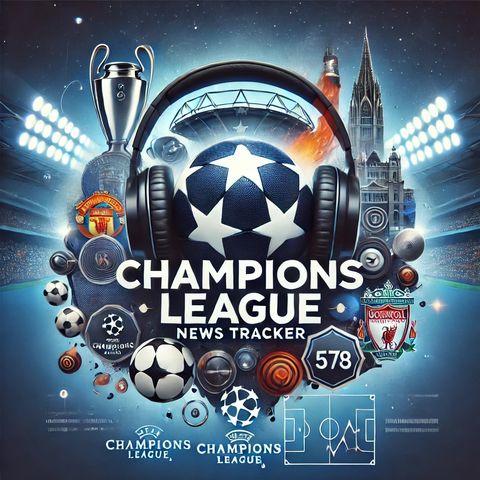30 SEP. 2024 · The UEFA Champions League, one of the most prestigious tournaments in club football, continues to captivate millions worldwide with its thrilling matches and high-stakes drama. The competition, organized by the Union of European Football Associations (UEFA), brings together top clubs from across Europe to vie for the coveted title.
Listeners may know that the tournament begins with a qualification phase during the summer, followed by a group stage featuring 32 teams. These teams are divided into eight groups of four, where they compete in a round-robin format. The top two teams from each group advance to the knockout stages, which include the Round of 16, quarter-finals, semi-finals, and the final.
This season has seen formidable performances from perennial powerhouses like Real Madrid, FC Barcelona, Bayern Munich, and Liverpool. Real Madrid, the most successful club in the competition's history, is always a favorite, having won the title 14 times. Meanwhile, clubs like Manchester City and Paris Saint-Germain are eager to secure their first Champions League trophy, demonstrating impressive progress and financial investment in recent years.
Listeners should note the rise of underdog teams that have made headlines by upsetting more established clubs. Every season, teams like Ajax, Atalanta, and RB Leipzig surprise audiences with their spirited performances and tactical prowess, adding an element of unpredictability to the tournament.
The Champions League final is a global event, attracting viewers from every continent. The host city rotates yearly, with Istanbul set to provide the backdrop this season. The final is not only a battle for glory but also a showcase for some of the best talents in the world. Players like Lionel Messi, Cristiano Ronaldo, Robert Lewandowski, and Kylian Mbappé continue to make headlines with their outstanding skills and crucial contributions.
Significantly, the Champions League also serves as a major financial boon for participating clubs. Prize money, broadcasting rights, and sponsorship deals contribute to a substantial revenue stream. The winners of the tournament receive a multi-million euro prize, solidifying their financial stability and enabling further investments in talent and facilities.
Technology has become an integral part of the Champions League, with the use of the Video Assistant Referee (VAR) being a crucial development. VAR has helped referees make more accurate decisions on critical calls, ensuring fairness and reducing controversies. Additionally, data analytics and performance metrics have revolutionized how teams prepare for matches, providing deeper insights into opponents' strategies and players' fitness levels.
Listeners will find it noteworthy that the social and cultural impact of the Champions League extends beyond the pitch. The competition fosters a sense of unity and excitement among fans, often leading to increased tourism and economic activity in host cities. Football clubs engage in various outreach programs and community services, leveraging their platform to promote positive change and inclusivity.
As the tournament progresses, excitement builds towards the finale, which promises to be a spectacle of skill, strategy, and sheer determination. Teams and fans alike are eager to see who will be crowned as the new champions of Europe. Whether a seasoned supporter or a casual follower, the UEFA Champions League continues to offer an unparalleled sporting experience, bringing together the best of European football in a celebration of athleticism and competition.


